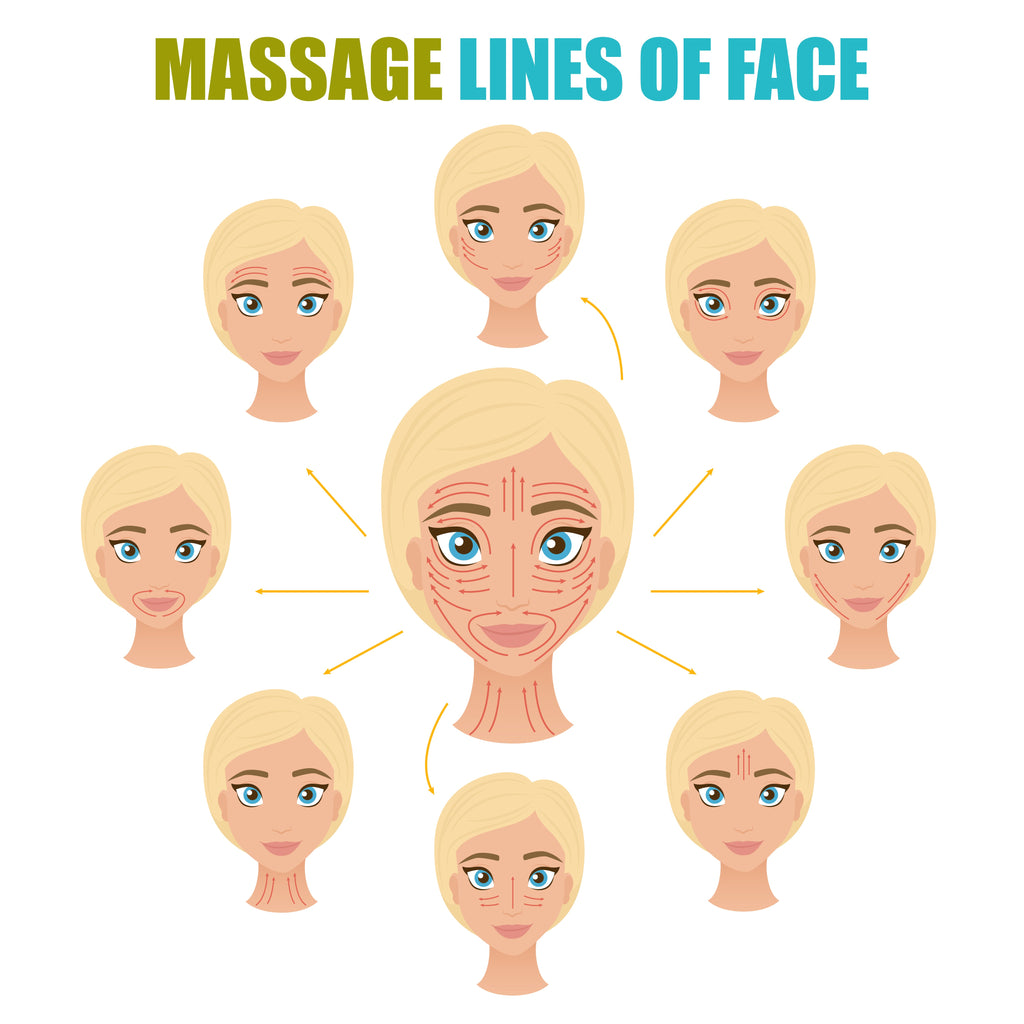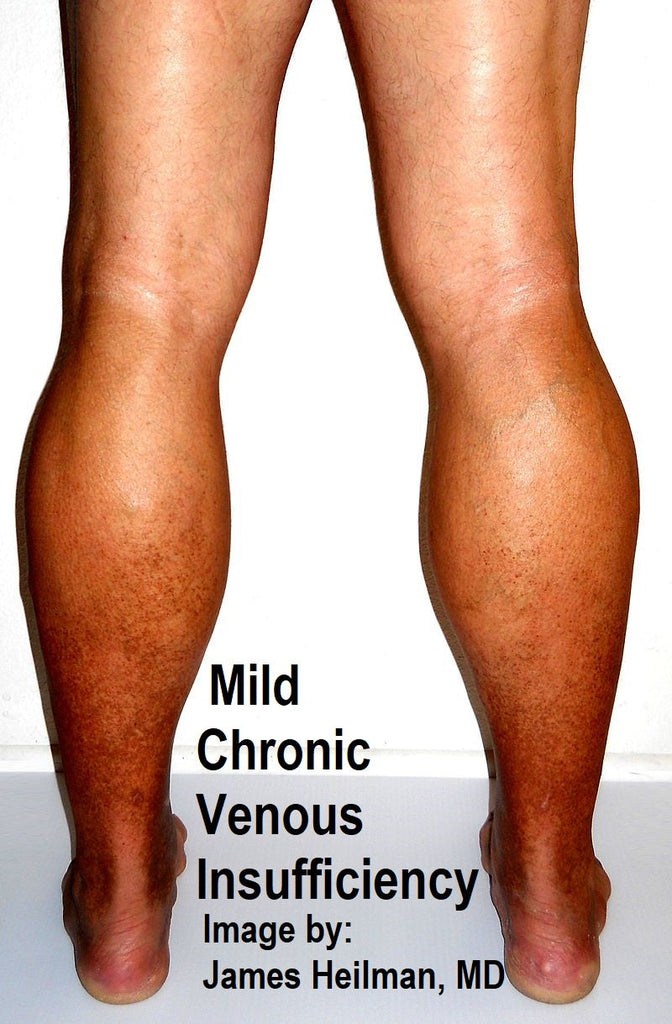Gommage, gommage, gommage, oh my! I couldn’t find a single place that offered massage in Paris without having gommage aka known as a body scrub. Almost any Parisian massage establishment has gommage on their service menu. Providing body scrub service by a spa or massage establishment’s massage therapist or cosmetologist is just good business. It provides additional income for both establishment and practitioner through services, plus a possible product sale if a take-home version of the scrub is sold. It also offers a new experience for customers who may want something different and it breaks up the monotony of other services that the service provider may be practicing all day long too. Spa body scrubs are a win win win situation for all, that is unless you do not know how to properly provide one.
Some think that if they’re a massage therapist, they can simply do a body scrub too? How hard could it be? The answer is - it’s not hard, when you have the proper customized training, know how to properly adjust and use the various ablatives. If a massage therapist tries to apply a scrub like a massage medium - then you’ll encounter problems. Those two products are VERY different, not only in texture but also in how you apply or use them too. Scrubs are not massage mediums, and most feel terrible if you try to use it like a massage oil or lotion too.

Our feeling is body scrub manufacturers are sending sales reps without proper training to sell and train establishments on how to execute a body scrub in a dry or wet room. Obviously a sales rep that is unlicensed with no hands-on experience demonstrating spa products would be a poor choice for training, although we’ve seen this before and we suspect that type of practice is increasing too. If you would like to learn a new service with a new product, ask the sales rep to demonstrate the service ON you first, prior to investing in whatever they are selling. This helps practitioners/decision makers learn what it should feel like with good execution, and can also help identify bad products and poorly provided services too.
We’re providing a list of Do’s and Don’ts for Spa Body Scrubs after receiving several of these treatments that were less than satisfactory. In the following steamed scrub video, you’ll see the fast, brisk fairly light movements with water application used to scrub the skin and gently dissolve the scrub to keep the product lose, less scratchy, more tolerable and make it easier for washing off in a dry room setting:
Here are some tips and points about a recent spa body scrub service I received in Paris, with focus on what not to do, with most of these pics below depicting non-ideal service:
The practitioner provided paper panties to wear for the scrub and asked me to lie face down in the pronated position at the start of the session. She did not provide any draping to cover myself with (don’t). She left me full exposed during the entire full body scrub session on both my posterior and anterior body (don’t).
OnceI was lying in pronated position on the massage table, she entered the treatment room and started the service with quick brisk scrub strokes on the soles of my feet which was very ticklish (don’t). Most people would experience a ticklish feeling in the feet when lightly rubbing back and forth on them with something slightly scratchy. Unfortunately this is where the practitioner's light pressure stopped. It’s almost as if the practitioner was prepared for the client to not tolerate starting on the feet, but despite her apprehension, she did it anyway (don’t). If something’s repeatedly feeling wrong to you, or you’re repeatedly getting negative feedback or consequences from the client, you should perhaps rethink your work, and in this case, starting a different area other than the feet would have been more appropriate at the pressure and speed.

The practitioner kept scrubbing my calves with excessive pressure (don’t). She just kept going back to calves over and over again with excessive amounts of pressure. It might have been okay with one or two passes, but twelve or more very heavy pressure passes of scrub into my skin (instead of over it) became too much, and I finally had to tell her to lighten her pressure. I told her this so she wouldn’t draw blood! When it comes to scrubbing in large fleshy areas, a full hand with heavy palm contact isn’t the most appropriate to repeat over and over again when jagged sharp sugar and salt crystals are on the client’s skin.
After I told her that her pressure was too much, she lightened it for a few seconds and then immediately went back into her heavy handed pressure (don’t) I probably asked her to lighten her pressure at least 8 times in 20ish minute full body scrub. That’s not relaxing folks. That’s a poorly executed nuisance.
What the practitioner should have done knowing there was an issue with her pressure, was check in after applying scrub to each new area, such as the second leg, or when she moved to the back, etc. (Do). No client should have to ask for the same less pressure eight times in 20 minutes. That’s unacceptable.
After she completed both posterior legs, she moved on to my low back (don’t). The low is the most sensitive area of the back, so when starting bodywork such as scrubbing, hot stones, cupping, graston or much of anything that might be initially slightly shocking to a client, we recommend starting in the upper back area where the body is less sensitive. Her back scrub was okay, minus the unacceptable amount of pressure that continued, even when I asked her for less pressure, which were the words she offered when I told her the pressure was too much, so I do not believe there was a language barrier. I simply believe this massage therapist works with one pressure for all regardless of what she’s doing, and that’s after experiencing a full body scrub, massage and facial with her. All three services were the same exact pressure regardless of the service.
In the picture below, you can see the practitioner's hands have the palms in firm contact with the client's skin. This would be an example of an erroneous application and pressure. It's okay to use a flat hand to fly back and forth over the skin lightly with a scrub, but you should never try pressing or pushing a scrub into the client's soft tissue such as their back, which would be too abrasive and an inappropriate application:

She had me turn over and she started on the feet again. She did some really nice work, or scrubbing around the ankles and heels, then moved up the legs with a venous return approach (do). She also avoided the inner thigh which is generally too sensitive for body scrubbing (great job). She moved onto my arms but the pressure just didn’t let up. It’s like she only had one gear and doesn’t shift it for anyone. She did a great job making sure the hands, feet, fingers and toes were scrubbed (do), but unfortunately while scrubbing my fingers she pulled the scrub interiorly towards my fingertips (don’t), instead of keep her venous return approach of working towards the heart to help continually increase circulation.
Pictured below shows how the palm is firmly planted on the client’s skin which is a repeated misapplication of scrub treatment again. Scrubs should primarily be moved about the client’s body with your fingerpads, and acceptable full hand scrubbing should only be applied when flying lightly over the skin as demonstrated in our youtube video. The only places it might be acceptable to increase scrub pressure with a palm, etc., would be when working on thicker skinned areas. Examples of thicker skinned areas are the heels of the feet which are also less sensitive to pressures and scrub.
 She then moved onto my abdominal area which was very interesting. Normally we skip the anterior thoracic and abdominal cavities when it comes to spa scrubs, due to how sensitive these areas can be, and of course you would never scrub a woman’s breast. Luckily she was very gentle with her abdominal scrub (do), and it felt great too. That was wonderful. When applying body scrub to the abdomen, practitioners should work in the same clockwise direction as they would normally apply in abdominal massage. Different mechanical maneuvers and pressure would be applied to the abdominal area with body scrub product.
She then moved onto my abdominal area which was very interesting. Normally we skip the anterior thoracic and abdominal cavities when it comes to spa scrubs, due to how sensitive these areas can be, and of course you would never scrub a woman’s breast. Luckily she was very gentle with her abdominal scrub (do), and it felt great too. That was wonderful. When applying body scrub to the abdomen, practitioners should work in the same clockwise direction as they would normally apply in abdominal massage. Different mechanical maneuvers and pressure would be applied to the abdominal area with body scrub product.

She continued her scrub up through the sternum and then over my right pectoralis minor to my shoulder; however, she only did this on the right side, and didn’t do the same on the left. Then she just finished and started to setup for a shower leaving me feeling a little off balanced by not completing the left side with the same (don’t).
She did not remove the scrub from my feet before asking me to dismount the table (don’t). I slipped not realizing how oily the scrub was. With the excessive pressure all I felt was scratchiness and raw, so finding there was a decent amount of oil on my feet was a shocking surprise. She also did not put a towel and there was no matt on the floor to dismount (don’t), so I slipped on a smooth vinylish floor.
This was a wetroom 3-step spa scrub where she performed the scrub, then I was to shower the scrub off while she changed the table, then I was to get back onto a clean table for a massage. She walked into the shower with my while I was only wearing paper panties (don’t) and did so with her shoes on (don’t), then showed me how to partially operate the shower and did not mention the knob she told me to turn the shower off would also poor water on me from a waterfall above if I turned it too far - massive don’t. Now my hair that I just styled the other day is unsalvageable - frown face.

Once I started rinsing the scrub off, I realized it was extremely dry. After applying the product and scrubbing a bit, the provider could have added some water to help make the scrub feel less scratchy and raw, and to help loosen the scrub so that it would be easier to remove. It usually feels best to start with a full salt or sugar scrub with a few strokes, and then start adding water to help the scrub dissolve so it’s easier to remove (do) regardless of who’s doing the removal.
I slipped again in the shower which wasn’t set up very well for someone who just had an oily scrub without removing the product from the feet first before entering this wet area. The most appropriate business practice here would be to provide some type of resusable/sanitizable wetroom footwear such as flip flops with a gripping sole so that the client can safely shower without slipping. Reusable flips flops might cost around $30 per pair but it could save you a $300,000+ lawsuit when a client slips and breaks a hip.

Once I finished showering, I dried myself off with a really nice large bath sheet that was provided, and walked back into the adjoining treatment room where it felt like my bare feet were sticking to the uncovered/dirty floor (don’t). The therapist then tossed the new one-size fits no one paper panties away before I had a chance to put them back on and told me to get back onto the table pronated/face down again fully naked. She then covered me with a dry towel but completely exposed my buttocks for the massage (don’t). There was no need for the excessive nudity other than to give her a real nice shine!
Her back massage was beautiful with alternating effleurages, friction, circular and other complex massage strokes (do). The pressure was fairly perfect and she finally checked in with me to make sure that was (do). When she had me turn over she then lifted the sheet in the air in a way that left me excessively nude again (don’t). This was totally unnecessary, unprofessional and unethical.
She finished with cervical and facial massage with continued skilled complexity (do), and it’s fairly obvious the therapist likely provides esthetic facial services with how wonderful her face, scalp and neck massage was. The creamed used with my facial massage had a faint hint of aromatherapy, which made the massage feel even more luxurious than the incredible contact, fullness and intricacy of the facial massage itself.

Overall the finishing body moisturizer/finishing massage was very good with a couple notable exceptions:
Always use cream or lotion to provide moisturizing massage after an oil based scrub. Applying an oil massage after applying the thick oil that’s traditionally used in a scrub is excessive, and can leave a client feeling sticky and sweaty. In this establishment, they used more oil for the finishing body massage application which was excessive, and would have been a better experience with cream or lotion.
Most gals love a good manicure and beautiful nails, however, I could repeatedly feel this massage therapist’s nails during her massage which was slightly distracting from her gorgeous strokes and soft tissue manipulation. Thankfully despite their length, they were well filed so it didn’t feel like she was cutting my skin, but it was a very unwelcome feeling.

No knee or ankles bolster was provided for pronated or supinated massage, and the excessive exposure through inappropriate and excessively nude draping techniques kind of spoiled her beautiful massage.
From a business, operational, liability standpoint, this spa scrub service is not worth the risk it is posing to the establishment due to poor practical standards. I noticed once I put my shoes on that the sound of them on the sticky floor was unacceptable. While the floor visibility appeared clean, it was likely no longer safe nor cleanable due to the oil buildup over time. The floor is not being protected from the excessive amounts of oil exposure, which could easily be solved by:
Not allowing practitioners to walk in the same area of product (treatment room, shower, etc.) and then continue their footwear into other parts of the spa, i.e. treatment room, hallway, stairs.
Provide appropriate boundaries and protections for flooring, such as using bath matts, towels, etc., which were not used nor provided to protect the floor of this establishment.

In the end, this wasn’t the worst spa scrub in the world, but it wasn’t great either. By adjusting the service with these minimal points, it might have been absolutely incredible, especially when the practitioner was brave enough to scrub the belly and finish her massage with her magnificent facial massage.
If you practice spa body scrubs, then you should receive one of these annually, hopefully from someone who’s using the same type of scrub as you are, so you can feel what it feels like when you’re using that product. Ask them to work in the same direction as you, with similar pressure and strokes, etc. Hopefully feeling this will allow you to understand what the service feels like to inspire continued excellence when you’re providing the same.































































